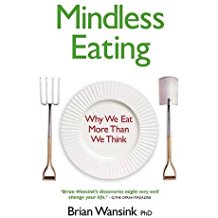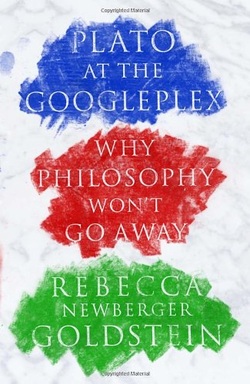
The Last Chronicle of Barset by Anthony Trollope, available in numerous editions from numerous sources. You can get it on Kindle for free.
The candidate for this week’s book review was Liberal Fascism by Jonah Goldberg, but I’m still wading through it. Don’t get me wrong: it is an important book, I might say even an essential book. But it will have to wait until next week. I can only absorb a little of it at a time and am now just four and a half hours into a 16-hour audio version.
For some reason I was reminded of Trollope’s masterpiece and decided that it would be a good stand-in, even though it has nothing to do with geopolitics. Instead, I guess you could say that it has much to do with personal politics. I have read it at least twice and probably more; I love it and can hardly believe that Trollope ground it out, under pressure and deadline, just as he did all of his novels. But more of that in a minute.
First let me say that if you do not fall madly in love with the character of Lily Dale, and mourn for Johnny Eames, and want to strangle Mr. Crawley, well, I just don’t know about you. These characters are as real to me as . . . Lord Peter Wimsey and Harriet Vane. As you might gather from the title, the novel is part of a series and is indeed the last one. But you don’t have to have read the other five to enjoy this one, although if you’d like to get more of the backstory you could read The Small House at Allington, the one immediately preceding Last Chronicle.
I am amazed at writers who seem to have an inexhaustible geyser of creativity gushing out of them. (Perhaps not the best image.) Where does all of this come from? How do you just create these people, and these events, and these entire societies, out of your own imagination? It boggles me. I’m a very slow writer myself, and if I ever manage to get down on paper the one novel I keep saying I’m going to write it will probably be finished on my deathbed. Trollope is known not only for the quality and quantity of his output but also for his methodology. He paid a servant on his estate five pounds a year to wake him up at 5:00 every morning–the man was not to give up until Trollope was out of bed–and sat at his desk from 5:30 to 8:30, churning out 250 words every 15 minutes. If he finished one novel before his time on a certain morning was up he started on a new one. (It’s tempting to take all this with a grain of salt. Did the man never do any revising? Still, those 47 novels, plus travel writing and an autobiography, didn’t come out of nowhere.) The truly amazing aspect of Trollope’s writing is not its volume; people have churned out so-called “potboilers” by the gross ever since it was possible to get paid by the word. (The term refers to literary output done simply to pay the bills, or to keep the pot boiling.) His portrayals of character are remarkable, particularly those of women. (I just leafed through a few pages and was reminded of Mrs. Proudie, yet another great Trollopian creation.)
Great quote from Trollope: “A small daily task, if it be really daily, will beat the labours of a spasmodic Hercules.” So true.
I know, I know. My edition runs to almost 900 pages of small type. Audible.com has the audiobook available, although it’s kind of expensive. My library system, Arapahoe Libraries, has it on Hoopla. Hey, it’s only thirty-four hours! Think of all the needlepoint you could get done in that amount of time!
 Since our out-of-town company arrives this evening for a stay of a week, I may not be posting much over the next few days and figure that I’ll get something written about the resolutions I’m making as of RIGHT NOW. (Why should I wait until Jan. 1?) These resolutions are in the area of small, consistent actions, the kind of thing that I hate doing. I mean, like, DESPISE. My kitchen has been a disaster zone for the past week, for example, because I never got it completely cleaned up after last week’s big baking extravaganza for our church’s Christmas party and then haven’t been very consistent about cleaning up after meals since then.
Since our out-of-town company arrives this evening for a stay of a week, I may not be posting much over the next few days and figure that I’ll get something written about the resolutions I’m making as of RIGHT NOW. (Why should I wait until Jan. 1?) These resolutions are in the area of small, consistent actions, the kind of thing that I hate doing. I mean, like, DESPISE. My kitchen has been a disaster zone for the past week, for example, because I never got it completely cleaned up after last week’s big baking extravaganza for our church’s Christmas party and then haven’t been very consistent about cleaning up after meals since then. Since our out-of-town company arrives this evening for a stay of a week, I may not be posting much over the next few days and figure that I’ll get something written about the resolutions I’m making as of RIGHT NOW. (Why should I wait until Jan. 1?) These resolutions are in the area of small, consistent actions, the kind of thing that I hate doing. I mean, like, DESPISE. My kitchen has been a disaster zone for the past week, for example, because I never got it completely cleaned up after last week’s big baking extravaganza for our church’s Christmas party and then haven’t been very consistent about cleaning up after meals since then.
Since our out-of-town company arrives this evening for a stay of a week, I may not be posting much over the next few days and figure that I’ll get something written about the resolutions I’m making as of RIGHT NOW. (Why should I wait until Jan. 1?) These resolutions are in the area of small, consistent actions, the kind of thing that I hate doing. I mean, like, DESPISE. My kitchen has been a disaster zone for the past week, for example, because I never got it completely cleaned up after last week’s big baking extravaganza for our church’s Christmas party and then haven’t been very consistent about cleaning up after meals since then. A terrible, terrible habit of mine. I’ll be all ready to get started on an actual task, something that needs to be done, and then I’ll say to myself, “But first let me check my e-mail. But first let me see what so-and-so is saying on that website I like. But first let me have a snack.” Whatever. Half an hour, forty-five minutes, an hour can go by.
A terrible, terrible habit of mine. I’ll be all ready to get started on an actual task, something that needs to be done, and then I’ll say to myself, “But first let me check my e-mail. But first let me see what so-and-so is saying on that website I like. But first let me have a snack.” Whatever. Half an hour, forty-five minutes, an hour can go by.  If we use it correctly, that is.
If we use it correctly, that is.

 “The only person I can change is myself.”
“The only person I can change is myself.”
 Mindless Eating: Why We Eat More than We Think by Brian Wansink, Ph.D., Bantam Books, 2006, new editions available along with new resources. Check out Dr. Wansink’s website at
Mindless Eating: Why We Eat More than We Think by Brian Wansink, Ph.D., Bantam Books, 2006, new editions available along with new resources. Check out Dr. Wansink’s website at  Some of you reading this will want to hit me over the head with your Day-Timers(c) when I say this, but the fact is that I have altogether too much control over my time. I work from home, my only child is 20 years old, and my husband is a laid-back kind of guy. Don’t get me wrong: 1) I have lots to do, and 2) I’m not complaining. It’s just that I get to choose when to do most of the things I have to do. And I’m very, very bad at making those choices. Why is that? Because I’m what Gretchen Rubin calls an “obliger.” I will kill myself meeting an outside deadline because I respond readily to others’ expectations. But I have a terrible time responding to my own.
Some of you reading this will want to hit me over the head with your Day-Timers(c) when I say this, but the fact is that I have altogether too much control over my time. I work from home, my only child is 20 years old, and my husband is a laid-back kind of guy. Don’t get me wrong: 1) I have lots to do, and 2) I’m not complaining. It’s just that I get to choose when to do most of the things I have to do. And I’m very, very bad at making those choices. Why is that? Because I’m what Gretchen Rubin calls an “obliger.” I will kill myself meeting an outside deadline because I respond readily to others’ expectations. But I have a terrible time responding to my own.